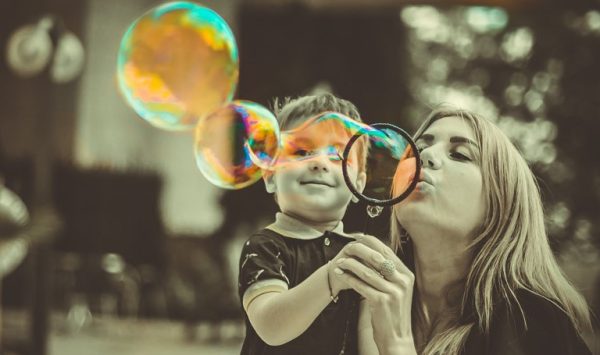
Positive Interaction Helps Kids To Develop Self Esteem
Positive interaction with children results in strong relationship and creates nurturing environment. It helps kids to develop self esteem. There are different ways to create positive environment and to interact with kids.
Be present: without any type of distraction, listen to your child when she talks. Keep away the phone and spend quality time. Participate and engage in kids activities, play and take part in conversations.
Use of language: Use encouraging words, be supportive and be respectful when you talk to your child. Focus on kids strength, help to overcome weakness and give constructive feedback to build their strengths.
Listening: Your active listening gives child courage and encouragement. When child talks maintain eye contact, ask questions, and help child to express thoughts and feelings.
Exhibit empathy and understanding: You may not totally agree with child’s emotions, do acknowledge and validate the child’s emotions. By showing empathy to child experience will help them to understand situations better and help them to navigate through their feelings.
Decision making and encourage to be independent: Help child to make age-appropriate choices and decisions. Guide and provide opportunities to take responsibilities, to build experiences and to be independent.
Have fun together: Engage in activities and play with child. Often join them in their outdoor activities, projects, games and even imaginative play of child. These will create positive memories not just for child, for parents too.
Establish clear expectations: Establishing clear expectations and rules that are age and developmentally appropriate. Reinforce them consistently and periodically. This provides sense of security and structure in child’s life.
Celebrate child’s accomplishment: If child participates in activities, wins big or small – celebrate everything equally. Use praise, rewards, or small incentives to reinforce positive behavior. When you celebrate their accomplishment it helps to build self -esteem and motivates to achieve big.
Be patient and understanding: children while learning may make mistakes and it is common. Sometimes their behavior can be challenging or they may struggle in certain tasks. In these situations show lot of patience, approach calmly, understand what is going on and guide child throughout learning process.
Practice active problem-solving: When there is a smaller problem encourage the child to find solutions to conflicts or challenges by involving in problem-solving discussions. Teach them effective way of communication and conflict resolution skills.
To build positive relationship through positive interaction, requires patience, genuine care and consistence efforts. Adapt your approach based on their age, personality, and individual needs. By fostering positive relationships, you can create a nurturing and supportive environment that promotes their overall well-being and growth.
Image credit: Image by Марина Вельможко from Pixabay (cc by 0)
Author: Sumana Rao | Posted on: July 18, 2023
« Playing Scavenger Hunt Helps Kids Introducing Reading Habit In Kids »






















Write a comment